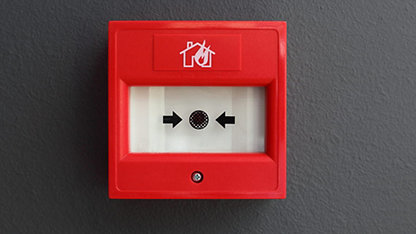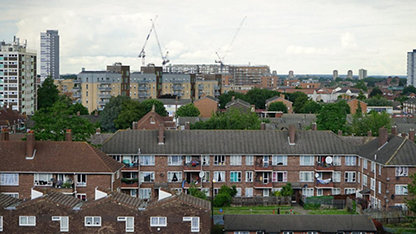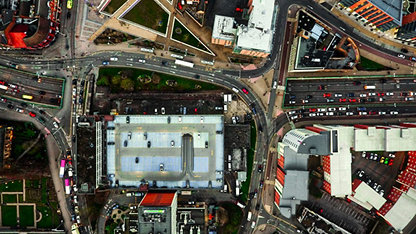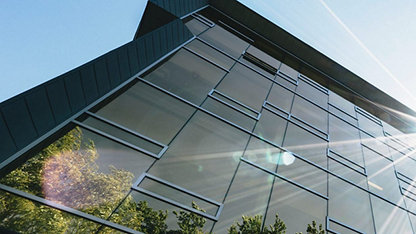Dubai is known for its mega skyscrapers, it’s mixed use buildings and perhaps best known for having the world’s tallest building, The Burj Khalifa.
The city has come to embody new and developing trends in managing tall business and residential buildings; and what has been called “vertical urbanism” or “vertical cities”. The “Burj” was called the first “vertical city” when it launched in 2010 and was celebrated for it’s mixed-purpose mega tower, housing residents, businesses and a hotel.
In 2015, the Burj again made headlines when its famous New Years’ celebrations were almost haulted due to a massive fire at the neighbouring "Address Downtown" hotel minutes before the display was due to begin. Even though the Burj itself was not on fire, it cast a global spotlight on issues of fire safety evacuations, what building materials are used to minimise destructive fires, and what measures are in place to ensure that lives are not lost in the event of a fire.
But what the New Years’ fire in Dubai did to sound the alarm in 2015, the Grenfell Tower fire tragically highlighted in 2017. As the worst fire disaster in over 100 years in the United Kingdom (UK), the Grenfell fire drove home the global urgency of prioritising fire safety. 72 people lost their lives in an event that would lead the British government to refocus its attention on fire safety in buildings across the UK. It also triggered interest around the world as governments globally looked to address their own fire safety in the wake of the Grenfell fire.
Dubai hosts global meeting
In October 2018, several organisations in the building and fire safety sector, including global architectural and engineering professionals, developers, product manufacturers and industry leaders met at the Council on Tall Buildings and Urban Habitat's (CTBUH) annual conference. 1300 delegates from around the world attended the meeting, which took place in Dubai and Abu Dhabi from 20 to 25 October, with the theme focussed on: “Polycentric Cities: The Future of Vertical Urbanism”.
RICS was represented at the meeting, chairing the CTBUH Fire & Facades Group and we are using the opportunity to put forward the development of International Fire Safety Standards (IFSS).
July this year saw the launch at the UN in Geneva of the IFSS Coalition - which consists of local and international professional bodies and standard-setting organisations committed to developing and supporting a shared set of standards for fire safety in buildings. The standards aim to set and reinforce the best practice methods professionals should adhere to ensure building safety in the event of a fire.
The United Nations Economic Commission for Europe (UNECE), has joined the IFSS coalition as a member and is supporting this important work in the public interest. UNECE and it’s 58 members states have already endorsed these fire safety standards and will work with the Coalition to ensure global alignment with other associations and fire safety bodies globally.
In a statement made at the launch of the IFSS in Geneva in July, UNECE stressed that even though urbanisation may see an increase in taller, vertical buildings, fire safety is a risk for any building and its occupants.
“The growth in global population is driving the need for more and more high rise living vertical village towers which are mixed use, as well as more urban buildings which may pose a life safety risk. Occupiers, insurers, governments and investors in these buildings need to be reassured the building complies with an international fire safety standard. Fire safety has to be paramount in these and all other higher risk buildings. We are not so concerned by height but by risk - low level buildings could be high risk, e.g. hospitals, care homes, student accommodation, hotels. ”
United Nations Economic Commission for Europe (UNECE)
IFSS Coalition launch, 9 July 2018
Globally benchmarked standards on fire safety
Because no global standards exist, a myriad of diverse and divergent standards are in use around the world. There are differences in how materials are tested and certified, in national building regulations or codes for design, and in the guidance used to manage buildings in use.
This means that no overarching, authoritative benchmark exists which means confusion, uncertainty and risk to the public. Working in collaboration with global partners means that the International Fire Safety Standards (IFSS) can bring greater consistency by setting minimum levels of fire safety and professionalism across the world. The coalition will develop universal rules that classify and define fire safety standards, whether at project level or at state, national, regional or international levels.
The IFSS Coalition invites fire safety bodies around the world to join our efforts. Should you want to join the coalition, please contact Gary Strong, IFSS chair and RICS Global Building Standards Director.
About the author

Gary Strong FRICS
Global Building Standards Director, RICS
Gary leads the Global Building Standards department of Professional Groups. As a Chartered Building Surveyor, Arbitrator, Chartered Loss Adjuster and Chartered Building Engineer, he has over 38 years experience in residential, commercial and industrial property matters.
















